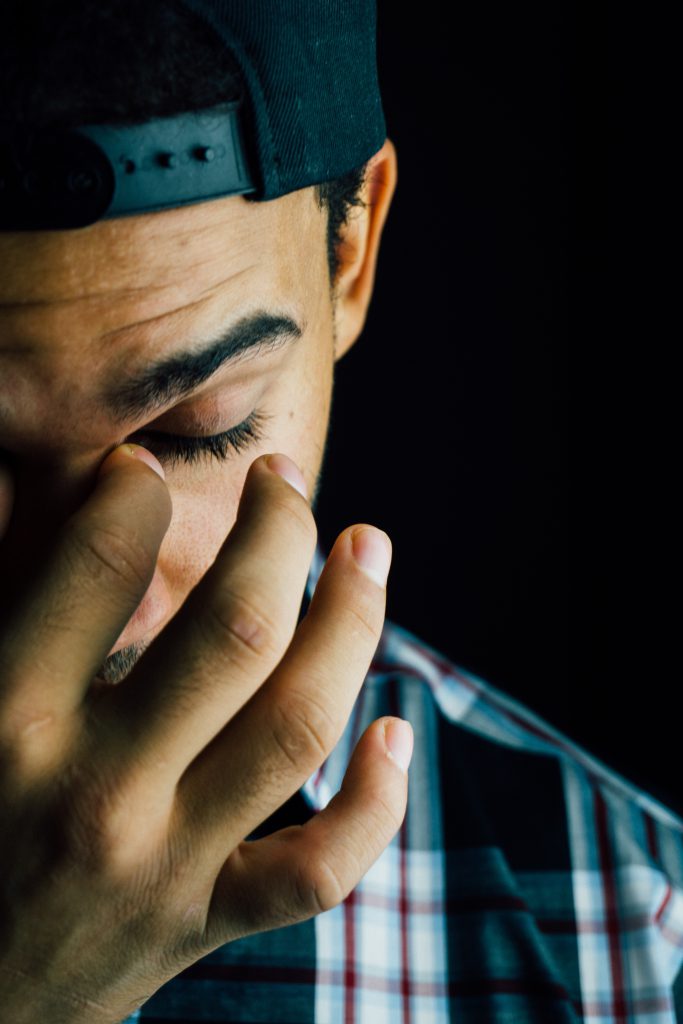
Sleep disorders (or sleep-wake disorders) involve problems with the quality, timing, and amount of sleep, which result in daytime distress and impairment in functioning. Sleep-wake disorders often occur along with medical conditions or other mental health conditions, such as depression, anxiety, or cognitive disorders. There are several different types of sleep-wake disorders, of which insomnia is the most common. Other sleep-wake disorders include obstructive sleep apnea, parasomnias, narcolepsy, and restless leg syndrome.
Sleep difficulties are linked to both physical and emotional problems. Sleep problems can either contribute to or exacerbate mental health conditions and can be a symptom of other mental health conditions.
What is sleep?
Sleep is a basic human need and is critical to both physical and mental health. it is as essential for good health as oxygen, food and water. Most scientists agree that sleep is important for restoring physical and mental health. It refreshes the mind and repairs the body. Lack of sleep, or sleep deprivation, can cause fatigue, poor concentration and memory, mood disturbances, impaired judgement and reaction time, and poor physical coordination.
The body’s internal clock regulates when and how we sleep depending on the amount of light around us. When the sun sets, your brain releases hormones to make you sleepy. In the morning, exposure to daylight suppresses these hormones and releases brain chemicals to keep you awake.
Consequences of Lack of Sleep and Coexisting Conditions
Sleep helps your brain function properly. Not getting enough sleep or poor quality sleep has many potential consequences. The most obvious concerns are fatigue and decreased energy, irritability and problems focusing. The ability to make decisions and your mood can also be affected. Sleep problems often coexist with symptoms of depression or anxiety. Sleep problems can exacerbate depression or anxiety, and depression or anxiety can lead to sleep problems.
Lack of sleep and too much sleep are linked to many chronic health problems, such as heart disease, diabetes and obesity. Sleep disturbances can also be a warning sign for medical and neurological problems, such as congestive heart failure, osteoarthritis and Parkinson’s disease.

What are the major categories of sleep disorders?
The categories of sleep disorders have changed many times over the years. Most recently, the International Classification of Sleep Disorders (ICSD) categorized sleep disorders based on the symptoms, how it affects a person (pathophysiology) and the body system it affects. The brand-new revision to the third edition, ICSD-3R includes the following categories:
- Insomnia: You have difficulty falling and staying asleep.
- Sleep-related breathing disorders: Your breathing changes while you sleep.
- Central disorders of hypersomnolence: You have trouble feeling alert during the day.
- Circadian rhythm sleep-wake disorders: Your internal clock makes it difficult to fall asleep and wake up on time.
- Parasomnias: Physical actions or verbal expressions happen during sleep like walking, talking or eating.
- Sleep-related movement disorders: Physical movements or the urge to move makes it difficult to fall asleep and/or stay asleep.
The ICSD updates regularly to include the most recent information about sleep disorders and the types that fall under these categories.
What are the types of sleep disorders?
There are over 80 different types of sleep disorders. The most common include:
- Chronic insomnia: You have trouble falling asleep or staying asleep most nights for at least three months and feel tired or irritable as a result.
- Obstructive sleep apnea: You snore and have moments during sleep when you stop breathing that disrupt your sleep.
- Restless legs syndrome: You have the urge to move your legs when you rest.
- Narcolepsy: You can’t regulate when you fall asleep or how long you stay awake.
- Shift work sleep disorder: You have trouble falling asleep and staying asleep and feel sleepiness at unwanted times due to your work schedule.
- Delayed sleep phase syndrome: You fall asleep at least two hours after your desired bedtime and have difficulty waking up in time for school or work.
- REM sleep behavior disorder: You act out your dreams while in the rapid eye movement (REM) stage of sleep.
What are the symptoms of sleep disorders?
Symptoms of common sleep disorders vary based on the type, but could include:
- Difficulty falling asleep or it takes more than 30 minutes to fall asleep regularly.
- Trouble staying asleep through the night or you wake up often in the middle of the night and can’t fall back asleep.
- Snoring, gasping or choking happens during sleep.
- Feeling like you need to move when you relax. Movement relieves this feeling.
- Feeling like you can’t move when you wake up.
During the daytime, you may experience additional signs and symptoms caused by a lack of adequate sleep including:
- Daytime sleepiness; you take frequent daytime naps or fall asleep while doing routine tasks.
- Behavioral changes like difficulty focusing or paying attention.
- Mood changes like irritability and trouble managing your emotions.
- Difficulty meeting deadlines or performance expectations during school or work.
- Frequent accidents or falls.
If you feel like you’re not able to get a good night’s rest or have symptoms that interfere with your daytime activities, talk to a healthcare provider.

How are sleep disorders treated?
There are several types of treatment options available for various sleep disorders, which could include:
- Changing your sleeping routine to promote a regular sleep schedule and proper sleep hygiene.
- Cognitive behavioral therapy.
- Taking medications (like sleeping pills or alerting agents) or supplements (like melatonin).
- Changing medications or dosages that cause excessive sleepiness (don’t stop taking a medication unless your healthcare provider approves it).
- Using a CPAP (continuous positive airway pressure) machine or having a neurostimulator implanted to control sleep apnea.
- Light therapy.
https://my.clevelandclinic.org/health/diseases/11429-sleep-disorders
